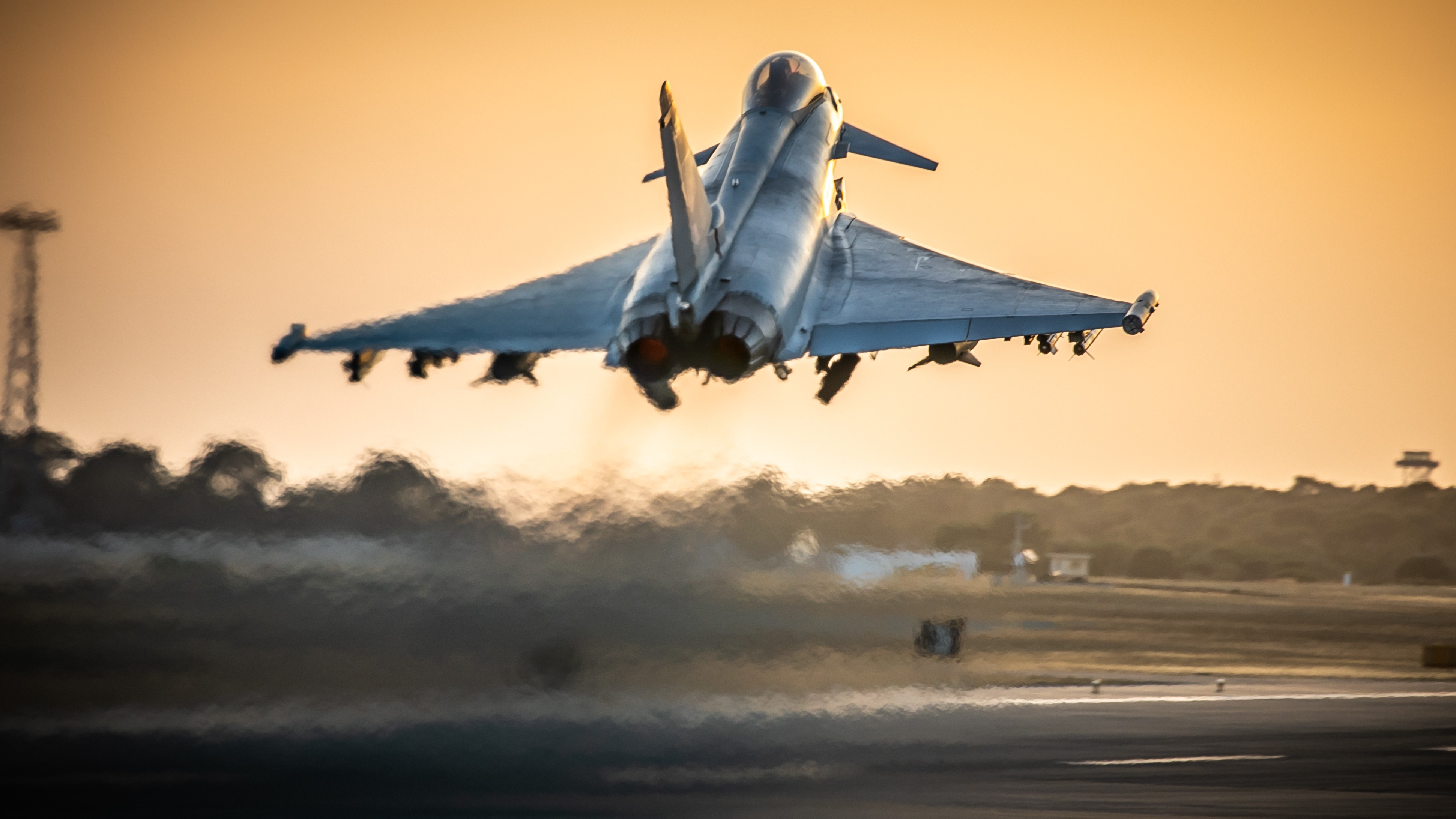
Sitrep: ISIS is not dead, but end of mission to defeat group has come at the right time

The so-called Islamic State is not dead, but the Western mission to defeat the terrorist organisation in Iraq and Syria can be considered a success, according to a former defence secretary.
Operation Inherent Resolve was the name for the coalition mission led by the US to defeat ISIS, with Operation Shader being the UK's contribution to get the group out of Iraq and Syria.
But it was announced last week that Op Inherent Resolve, and therefore Op Shader, would be coming to an end.
Sir Michael Fallon, who was defence secretary when Op Shader began, was on this week's Sitrep – which analyses the top defence stories of the week and is available wherever you get your podcasts.
He said a line had to be drawn when these missions came to an end.
"There's no doubt that Daesh [the Arabic acronym for the group] has been pushed back, certainly in Iraq," he said.
"And although Iraq is fragile, it remains a democracy.
"It has a working parliament and government, and there's always the danger of Daesh reviving. There are still terrorist pressures there.
"Syria, of course, is not resolved, but I think there comes a point where you do have to draw a line, and I'm afraid it's inevitable that attention then focuses elsewhere and of course is focused on other bits in the Middle East as well as on Ukraine."
Sir Michael pointed out that while ISIS is "not dead", the "immediate threat to the stability of Iraq has certainly receded".
"To that effect, I think Operation Shader can be chalked up as a success, not least because it followed, of course, on a series of much more controversial interventions in the Middle East," he said.
"We said right from the beginning we would not be putting our own troops on the ground.
"We would be helping, of course, from the air, we would be helping with intelligence, we would be helping with training.
"But the fighting in the end had to be done by local troops with the support of the local population.
"And I think that was one of the keys to the success of the operation in the end."
Sitrep's resident expert, Professor Michael Clarke, said ISIS had been dealt with from a strategic standpoint.
"The idea doesn't finish, because we live in a world in which these ideas still flourish to some extent," he said.
"And so… you don't completely eliminate these barbaric groups, but you can stop them having any strategic effect."
Prof Clarke said when ISIS established its "caliphate" in northern Iraq and Syria, it was "an evil empire, an operation that needed to be dealt with" – and now it has been.
"IS still exists and it will pop up elsewhere, but in ways that so far are not strategically significant," he said.
"That was what Op Shader was all about.
"So yes, it's appropriate that we leave it alone for now and concentrate on what is strategically most important to us.
"I think we do understand that we are having to rethink our strategic priorities because of our European commitments, and you can't keep doing these things forever.
"So I suspect that this is part of a drawing in of horns as we rethink our strategic future for the next 10 years."
The announcement that the operation was ending also outlined a defence partnership with Iraq that would continue.
Sir Michael said the UK had to keep helping Iraq where it needs it.
"That, of course, is certainly counter-terrorism," he said. "There is some debate in Iraq, particularly about the American presence.
"We've always made it clear that we are there at the request and with the support of the Iraqi government. And I think those are really the two key conditions.
"If they are not met, then our commitment is not welcome.
"For as long as the Iraqi government feel they need our support and welcome it, then we should continue."
You can listen to Sitrep wherever you get your podcasts, including on the Forces News YouTube channel.









